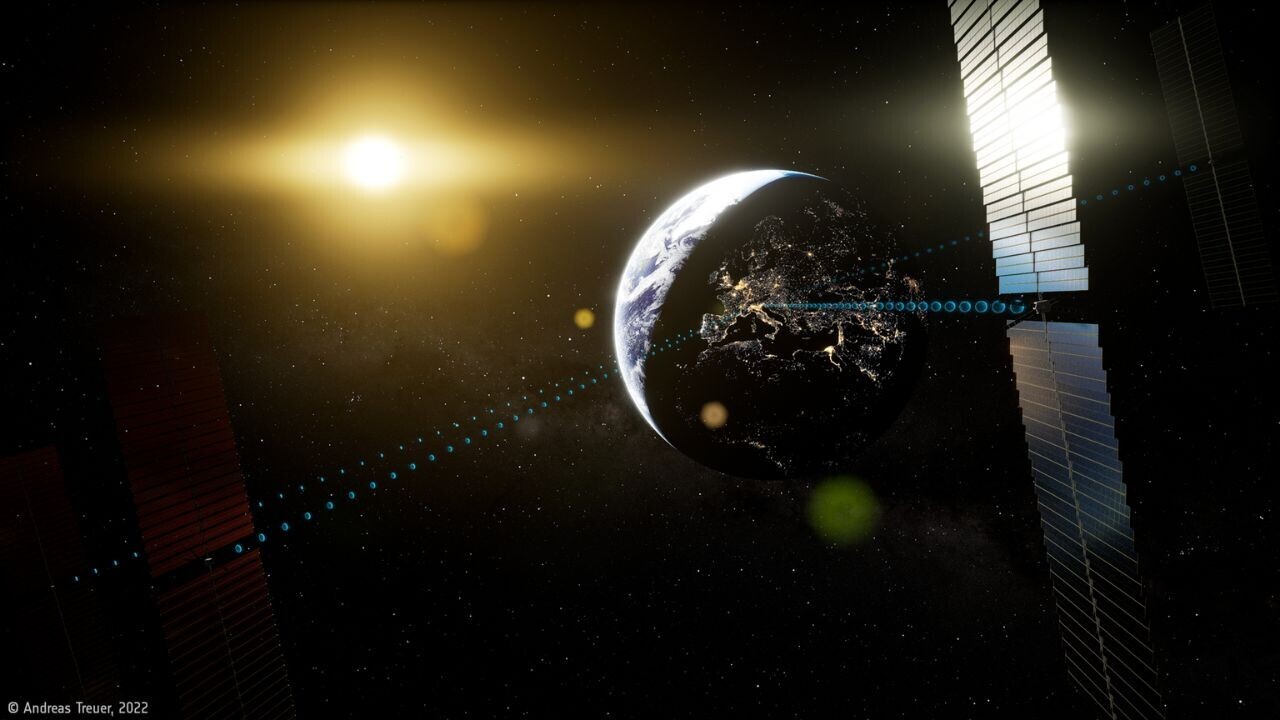
Thales Alenia Space will fine-tune plans to “harvest” solar energy in orbit, the European firm announced on Monday.
Named Solaris, the project aims to provide Earth with energy from space-borne solar power plants.
The idea emerged amid an EU push to reach net-zero greenhouse gas emissions by 2050. Solar energy from space could provide a clean alternative. It would also be available 24/7, ensuring electrical supply continuity without needing significant storage systems.
The European Space Agency, which is leading Solaris, enlisted Thales Alenia Space (TAS) to conduct a feasibility study for the initiative.
The study seeks to create new concepts for the system, using tech including high-efficiency space solar panels, wireless power transmission, and robotised assembly in orbit. These results will guide follow-on research and development activities.
TAS, a joint venture between France’s Thales Group (67%) and Italy’s conglomerate Leonardo, joins a range of European tech firms on the project.
Among the other members is Switzerland’s Astrostrom, which has proposed using a butterfly-inspired solar power satellite. Located at an Earth-Moon Lagrange point around 61,350 km from the lunar surface, the satellite would deliver 23MW of energy continuously.
The TAS study will determine the viability of all Solaris plans. By 2025, the project team wants to decide whether to commercialise space-based solar energy. Their initial objective will be creating a small-scale in-orbit demonstrator.
In the long run, they hope to make Europe a key player in the race to develop clean and sustainable energy solutions.
Get the TNW newsletter
Get the most important tech news in your inbox each week.
Also tagged with